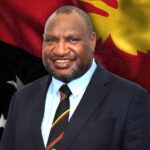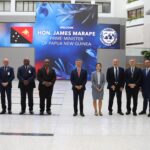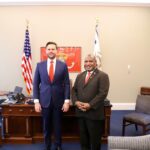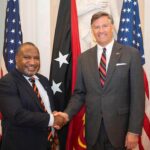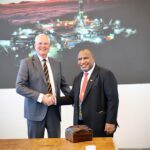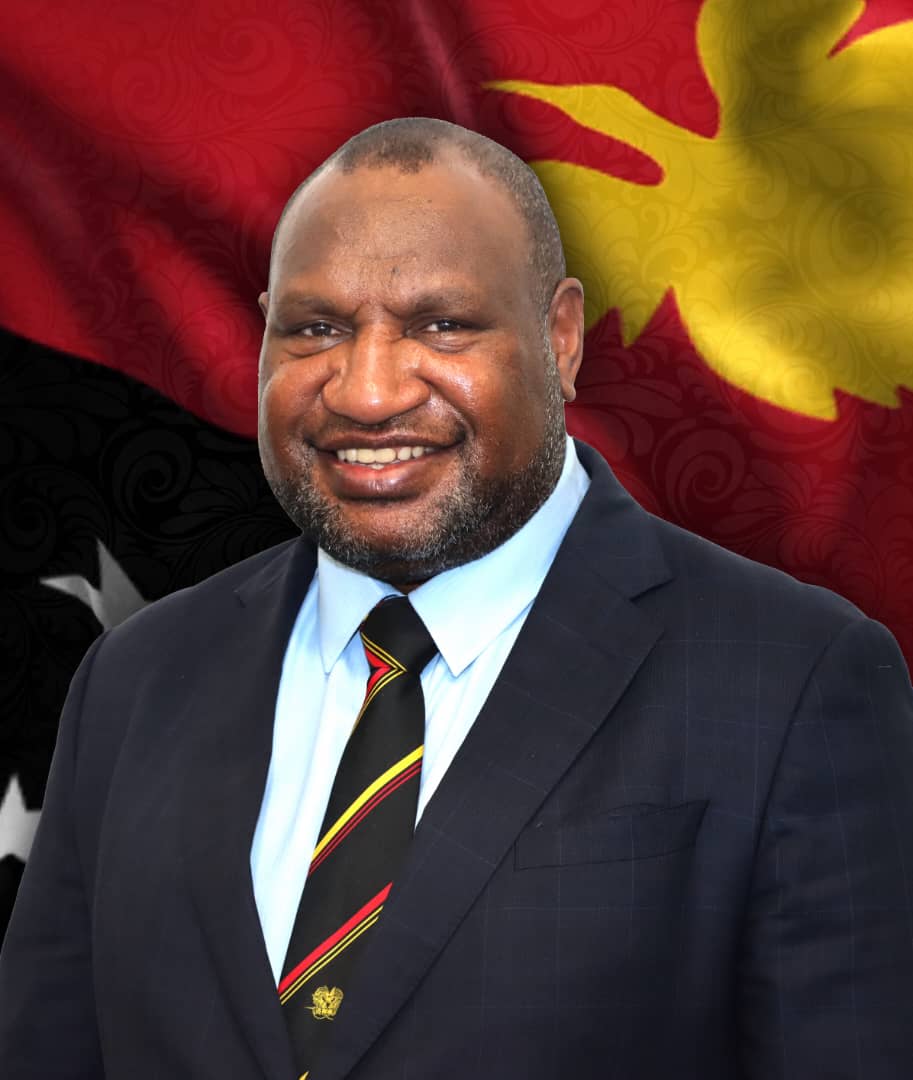Prime Minister Hon. James Marape has reiterated Papua New Guinea’s unwavering commitment to macroeconomic stability, fiscal reform, and debt sustainability during a high-level meeting with the International Monetary Fund (IMF) in Washington, D.C. The meeting was held at the IMF Headquarters with Deputy Managing Director Mr Bo Li, who directly oversees Papua New Guinea’s economic programme within the Fund.
The Prime Minister was warmly welcomed by Mr Li and his senior economic advisory team, underscoring the close relationship between Papua New Guinea and the IMF. The discussion was described as open, constructive, and far-reaching, with both parties reaffirming their shared commitment to advancing PNG’s economic transformation.
Strategic Engagement with IMF a Deliberate Policy Shift
Speaking after the meeting, Prime Minister Marape emphasised that the engagement with the IMF was a deliberate and considered policy decision taken by his government in 2019, shortly after assuming office.
“We made a conscious decision to invite the IMF back into Papua New Guinea after years of ad hoc and unsustainable fiscal practices,” Prime Minister Marape said. “Our goal has always been to place the country on a disciplined and transparent economic path, reduce reliance on commercial loans, and align ourselves with credible multilateral institutions that promote good governance and long-term development.”
He noted that unlike previous reliance on high-interest commercial loans and short-term financing arrangements, the partnership with the IMF, World Bank and Asian Development Bank is based on mutual respect and shared responsibility. These institutions, the Prime Minister said, are not peripheral advisors but internationally mandated agencies with a proven track record of supporting economic reform globally.
Progress on Home-Grown Reform Agenda
The meeting acknowledged the significant strides made by Papua New Guinea since 2020 in implementing a comprehensive home-grown reform agenda. Central to this agenda is a 33-point reform programme initiated by the Government with input and support from the Treasury, Bank of Papua New Guinea, and the IMF.
The Prime Minister confirmed that most of the reforms have been successfully implemented, with only a few remaining outstanding. He assured Mr Li that these would be addressed in the coming months.
“Papua New Guinea’s reform journey is not dictated by the IMF. These are reforms we initiated ourselves, recognising that our economy needed structural change,” said Prime Minister Marape. “These reforms are not only necessary—they are urgent. We must take ownership of our future and lay a foundation for the next 50 years.”
Debt Reduction and Budget Balance in Sight
The Prime Minister reiterated his government’s firm commitment to achieving a balanced national budget by 2027. He said that from 2028, PNG will embark on an aggressive debt repayment path, anchored by the implementation of the Sovereign Wealth. Fund, which is expected to be fully operational by that time.
“If we stick to our fiscal consolidation path, eliminate wastage, and grow our revenue base, we will be in a position to repay our debts and reduce our debt-to-GDP ratio to sustainable levels—targeting 30 percent or lower,” Prime Minister Marape stated.
He highlighted that by 2033, the government aims to eliminate all public debt accumulated since Independence in 1975, marking a historic milestone for the country.
Strong Economic Outlook Amid Global Uncertainty
According to IMF projections shared during the meeting, Papua New Guinea’s economy is expected to grow by 4.7 percent in 2025, a rate higher than the global average (3.7 percent) and outperforming the majority of Pacific Island Forum and ASEAN economies. The IMF attributed this growth to prudent fiscal management, the recovery of non-resource sectors, and consistent reform momentum.
Prime Minister Marape noted that the country has experienced four consecutive years of non-resource sector growth—driven by agriculture, fisheries, forestry, and small-scale enterprise—proving that the economy is beginning to diversify beyond extractive industries.
“For the first time in our post-Independence history, we are seeing consistent growth from sectors that benefit our rural population. This is no accident—it is the result of targeted investment and reform,” the Prime Minister said.
Diversification, Innovation, and Digital Government
In the meeting, Prime Minister Marape also pitched new areas of IMF technical assistance, including support for:
• Establishing AI-driven digital platforms for public procurement and public service recruitment, aimed at strengthening transparency and merit-based selection;
• Expanding renewable energy generation through hydro, geothermal and solar technologies;
• Utilising domestically available natural gas to power island provinces and supply neighbouring Pacific nations;
• Strengthening the country’s capacity to manage its Sovereign Wealth Fund transparently and effectively.
“These initiatives will not only help us modernise government, but also attract private investment and ensure efficient delivery of public services,” he said.
IMF Commends PNG’s Reform Commitment
The IMF welcomed Papua New Guinea’s clarity of vision and fiscal discipline, acknowledging the country’s success in clearing its foreign exchange backlog, stabilising the kina, and improving macroeconomic management. They also advised that the government consider incentives for exporters to repatriate foreign currency earnings, which would help further stabilise the balance of payments.
In their closing remarks, the IMF commended Prime Minister Marape and his government for staying the course in the face of challenges, including the COVID-19 pandemic and global economic volatility.
“This was a deeply encouraging conversation,” Prime Minister Marape concluded. “Papua New Guinea is firmly on the right path. We have come a long way since 2019. There is more work to do, but with discipline, we will emerge stronger, more resilient, and more prosperous.”
Prime Minister Marape concluded his official engagements in Washington, D.C., and is now returning to Papua New Guinea.


